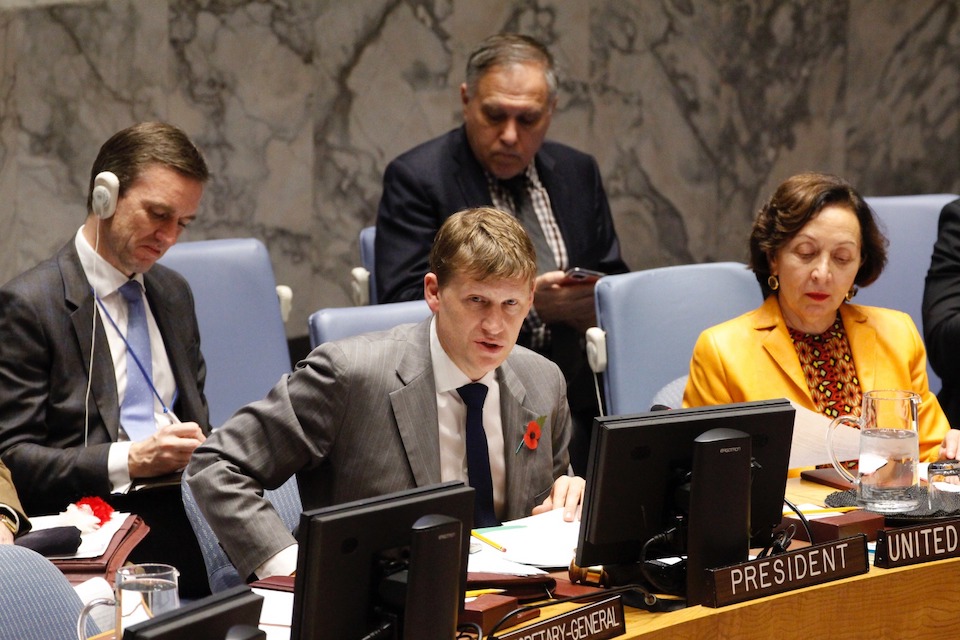Improving UN policing to encourage sustainable peacekeeping in Africa
Statement by Ambassador Jonathan Allen, UK Deputy Permanent Representative to UN, at the Security Council Briefing on United Nations Peacekeeping Operations: Police Commissioners.

Colleagues, policing is vital. And as we consider further and develop our understanding of peacebuilding, it’s more important than ever, as often police in that context are more effective than traditional reliance on troops.
Jean-Pierre Lacroix talked about the state legal functions of UNAMID in his introductory remarks in Sudan and in that context, I think as we look at peacekeeping to peace building in Sudan, a policing component will be vital in the follow-on mission; if you have any comments on that, it would be good to hear them.
If United Nations policing is to remain effective, then we – whether members of the council, police-contributing countries or police commanders need to listen to the experiences of police officers on the ground and consider how reform can make a practical difference. Our German colleague talked about UN policing not yet being the full potential it could have and I agree with that. We, of course, as the UK are strong supporters of UNSCR 2185 and 2382 and of the external review that took place in 2016 of the functions, structure and capacity of the UN police division, although more needs to be done on the outstanding recommendations of that review. And we believe the recent report on policing by the Secretary-General provides an opportunity to take stock of the various strands of reform as a clear plan for the future.
There are two areas I want to quickly highlight. Firstly, the UK wants to see the full integration of policing advice into mission planning processes, ensuring that policing expertise is included in decision making throughout the life of the mission. That means, in simple terms, police experts need to be at the table and they need to be listened to and that needs to be underpinned by a strong analytical capability.
Second, we want to see UN missions continue to support the development of law enforcement in host states - we’ve heard from some of our commanders today about that - and to do this based on an assessment of host state needs and capacity. We believe that to maximise impact, the police need to have the right specialists with the right disciplines in the right places. So we encourage police division to improve efficiency in recruitment and subsequent deployment. Recruitment can be slow and bureaucratic. It needs to be based on skills, capabilities and expertise. It needs to be transparent, fair and open and it needs to differentiate between former police units and individual police officers or specialised teams. And of course, police deploying into missions need to be trained to the highest standards so we want to see the strategic guidance framework setting up the doctrine for policing to be finalised urgently, including all guidance manuals.
Let me conclude my remarks by just noting I was struck by what Police Commander Yacouba had to say from MINUSMA about the relationship with the population, the importance of human rights, the importance of trust. To succeed in their mission, clearly officers need to be able to police locally to understand communities. A police officer, by definition, is an officer of the place where he or she serves. And that trust, I believe, is more readily formed if police officers reflect the diversity of the world they are sent to protect. Like our colleague from Peru, I’d be interested in Madame Fitah-Kona’s views on best practice in this question of community policing and establishing trust. And as others have said, and echoing what the commander of UNISFA had to say, Ms Gahonzire, I think we would like to see action against the obstacles which prevent women from entering UN police.
I have one specific question, which is simply to ask Monsieur Abdounasir, the commissioner from MONUSCO, on what the most pressing challenges for UN police are in the context of the recent strategic review of 24 September and how you intend to meet.